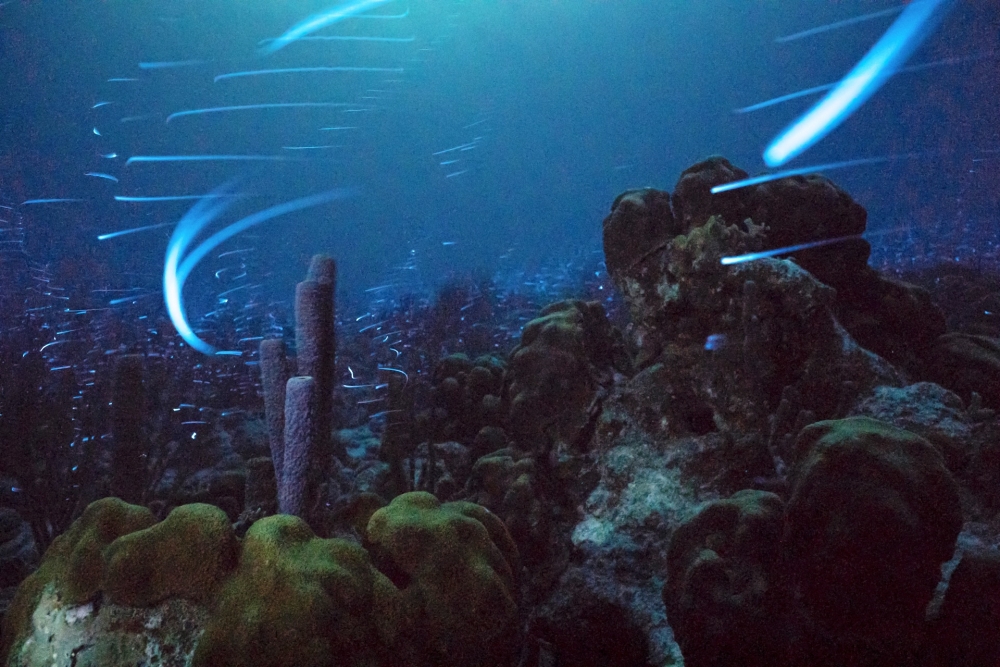

Bioluminescence is perhaps the most mesmerizing ability that life has evolved. From deep sea fish to glowing mushrooms, organisms have harnessed their light for a variety of pursuits including confusing predators, catching prey and even reproduction.
It makes for a fascinating area of study, as doctoral student Emily Lau would know. Her research on the phenomenon earned her a $20,000 Scholar Award from the P.E.O. Sisterhood. The award recognizes women doctoral students for their academic achievements and potential for positive impact on society. Lau was sponsored by Chapter OK of Santa Barbara.
“I feel extremely honored to receive this award from the P.E.O. Sisterhood,” Lau said, “and I’m grateful to be recognized as an innovative scientist.”
Lau and her co-advisor, Professor Todd Oakley, recently discovered that bioluminescence evolved independently at least 94 times across the tree of life. This makes it an excellent trait for investigating longstanding questions in evolution.
Lau focuses on ostracods (also known as sea-fireflies) and midshipman fishes. To produce bioluminescence, midshipman must eat luminous ostracods to obtain a molecule essential for light production, she explained. She and her other co-advisor, Assistant Professor Arnab Mukherjee, are currently studying the proteins used to produce and regulate bioluminescence in ostracods.
Although bioluminescent animals are incredibly diverse, some features of their abilities seem similar. “For example, fireflies, ostracod crustaceans and sea pansies use radically different biochemistries to produce light,” Lau said. “However, they converged on similar mechanisms to metabolize bioluminescent molecules.” Investigating how and why this happened provides insights into evolutionary processes and molecular mechanisms, which can then be applied to develop new biotechnologies.
The team is developing a biosensor to detect a process called sulfation, in which an enzyme adds a sulfate to another molecule. Sulfation is critical for important biological processes like detoxification and regulating hormones and neurotransmitters, Lau explained. Irregularities are linked to cancers, neurodegenerative diseases and skeletal disorders, so the pathway is a promising target for drug development. The group’s biosensor would be a major step forward, since there currently isn’t any way to assay sulfation in live cells.
Lau also is a recipient of the National Science Foundation’s Graduate Research Fellowship and research grants from the Society for the Study of Evolution, the Society of Systematic Biologists, and the Lerner-Gray Grants Program.
The P.E.O. Sisterhood — founded January 21, 1869, at Iowa Wesleyan College — is a philanthropic educational organization (P.E.O.) dedicated to supporting higher education for women. The Scholar Awards were established in 1991 to provide substantial merit-based awards for women in the United States and Canada who are pursuing a doctoral-level degree at an accredited college or university.



